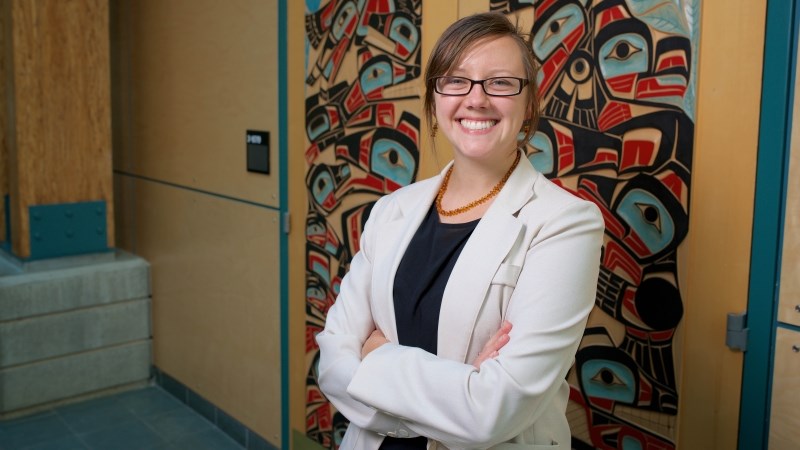Global and International Studies Associate Professor Dr. Agnieszka Pawlowska-Mainville is the first UNBC researcher to be awarded a UNESCO Chair.
She is expanding the scope of her research into intangible cultural heritage as the new the Co-Chair in Living Heritage and Sustainable Livelihoods for the United Nations Educational, Scientific and Cultural Organization (UNESCO).
“The Chair will unite communities, scholars, and organizations working in cultural heritage across Canada and we aim to share knowledge from different localities and from different languages, including Indigenous languages,” she said.
“The purpose of the Chair is to promote humanity's cultural richness and exchange knowledge share knowledge between different localities to promote and safeguard living heritages, including languages.”
She will be joined as co-chair by Kristin Catherwood, the Director of Living Heritage at Heritage Saskatchewan.
Pawlowska-Mainville will lead the academic and international aspects of the project which will provide her with opportunities to expand her work in cultural heritage, language transmission, food systems, and sustainable livelihoods.
“This puts UNBC at the nexus of research in living heritage, sustainable economic pathways, language transmission, and heritage-sourced livelihoods,” Pawlowska-Mainville said.
One goal of the project is to create a Research Centre on Living Heritage that will house key data, galleries, information and multilingual resources in this area of research that is open, accessible, and free for communities to use.
It will permit knowledge-holders to learn from each other, to connect with support systems, and experts to offer training in the protection, promotion, and safeguarding of intangible cultural heritage and sustainable livelihoods.
“Students who have a passion for cultures, languages, helping communities to promote and protect their cultural heritages - including their own - are welcome to engage with us,” Pawlowska-Mainville noted.



